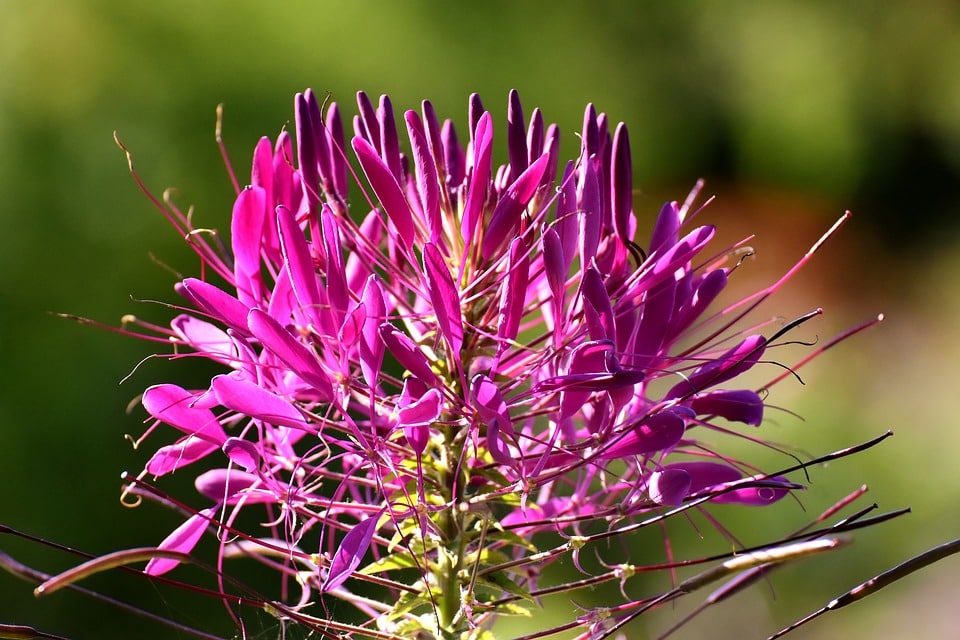The Best Houseplants to De-Stress Your Home And Purify The Air
Managing Your Environment Naturally
Certainly you can spend thousands of dollars on air purification technology which breaks down over time. This will help keep your air clear and clean. However, there’s a clinical element to purification tech. It’s not “homey”, it’s not “comfortable”. Also, it’s not cheap. If you want to have clean air, you’ll have to pay through the nose—unless you go “natural”.
The original air purification machines of the world were called plants, and, believe it or not, they’re still pretty good at what you do. In fact, they’re so good, cities are installing little plant arrays designed specifically for this purpose. They’ve seen an eightfold decrease in city pollution as a result.
In Japan, they’ve got one of the cleanest mega-cities in the world—Tokyo—largely owing to high emphasis on metropolitan horticulture. There are a lot of little “gardens” in Tokyo’s sprawling communities. De-stressing strategies, and air purification, represent societal cornerstones here. Well, with this in mind, this writing will explore internal plants to do the same for your home.
1. Bamboo
Bamboo is actually the most purifying solution for clean air indoors. You don’t need a massive clutch of bamboo stalks, either. Furthermore, it’s a really easy plant to grow. Just water it every now and again, and enjoy the benefits of stress-free air purification.
2. English Ivy
English Ivy is also an excellent air purifying plant. If you’re unfamiliar, it’s a green plant with white edging on the leaves, depending on the plant’s kind. It is a plant that’s popularly produced artificially as an aesthetically pleasing decoration. English Ivy additionally is very easy to work with. You can edge doorways with it like a vine, or hang baskets strategically.

https://pixabay.com/photos/cemetery-grave-tombstone-green-1766495/
3. Spider Plants
Spider plants have an appearance that is spider-like. These are a green plant that grows large and purifies the air, blooming a beautiful pink. It’s a great sort of plant to put at the edge of a couch, or by a coffee table. As with bamboo, maintaining these plants is fairly straightforward.

https://pixabay.com/photos/spider-flower-cleome-hassleriana-3520227/
4. Aloe Vera
Aloe Vera is well known for a variety of reasons. This plant produces a substance that is used to help soothe irritated skin. Additionally, there are edible qualities to the plant based on your method of preparation. To boot, like the others on this list, Aloe Vera purifies the air, and is a great aesthetic enhancement to most residential—and even corporate—decor.
In terms of stress reduction, not only do you get a cleaner atmosphere, you’ve got a resource for actual physical stress reduction. Inflammation in the body is a kind of physicalized stress. Aloe Vera pastes, balms, and gels reduce that inflammation, reducing stress on your body directly.
5. Peace Lily
The Peace Lily is a beautiful white flower that has a delicate appearance, and an archetypal purity of a type easily associated with peace. Peace is opposed to stress, emotionally speaking. The very name of this flower reduces stress. Simultaneously, the Peace Lily will help you keep the air clean. Since it’s a flower, it can also be a more central décor piece.
6. Rubber Tree
As with other entries on this list, the rubber tree is very worthwhile in terms of air purification. Surprisingly, rubber trees are also very easy to grow. Dim lights, cool temperatures—these don’t have a negative effect on the rubber tree. In Britain, you’ll find an abundance of them as a result. Also, the rubber tree gets rid of atmospheric toxins.

https://pixabay.com/images/search/rubber%20tree/
Keeping Your Home Clean And Stress Free
Different plants will work better or worse for you. Most people won’t have allergic reactions to the plants listed here, but there are likely some who would. You’ll want to know if there’s something in a given plant that your biology disagrees with before installing it in your home. Still, this is a very small concern.
Going the plant route for purification will save money, beatify your home, reduce atmospheric toxins, and lower your overall stress. Plus, you can simply grow such plants yourself if you like; there are many of these plants at the Seed Needs website. If you don’t have plants in your home, getting some is worthwhile, and totally affordable.



